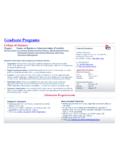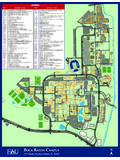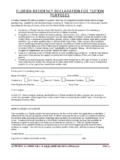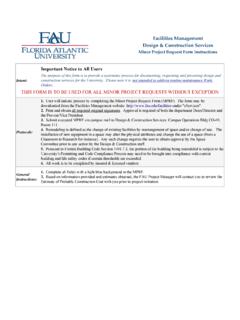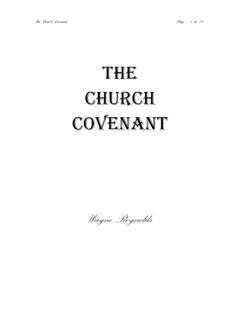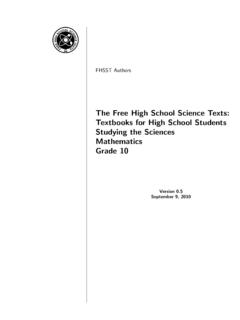Transcription of POLITICS AND ADMINISTRATION - FAU
1 POLITICS AND ADMINISTRATION : A REVIEW OF RESEARCH AND SOME SUGGESTIONS Tansu Demir University of Illinois at Springfield Department of Public ADMINISTRATION Public Affairs Center, Room 418 One University Plaza, MS PAC 420 Springfield, IL 62703-5407 Tel. (217) 206-8325 E-mail. Tansu Demir, , is an assistant professor in the Department of Public ADMINISTRATION at the University of Illinois Springfield. His research interests include public ADMINISTRATION theory, bureaucratic POLITICS , and public policy process.
2 He has forthcoming articles in ADMINISTRATION & Society, Public ADMINISTRATION Review, and International Journal of Public ADMINISTRATION . ABSTRACT The role of public ADMINISTRATION in the political process has been of great concern since the emergence of public ADMINISTRATION as an academic field in the late 1880s. The question of how public ADMINISTRATION relates to the political process is of pivotal importance to scholars and practitioners alike as it bears implications for disciplinary identity (and autonomy) and institutional development of public ADMINISTRATION .
3 Despite a voluminous literature on the subject, the question remains unanswered. This paper identifies three major schools of thought on POLITICS - ADMINISTRATION relationship, and examines the state of research that has flowed in three strands as historical, conceptual, and empirical. In the end, the paper makes an overall evaluation and lays out some suggestions. 1 POLITICS AND ADMINISTRATION : A REVIEW OF RESEARCH AND SOME SUGGESTIONS The proper role of public ADMINISTRATION in the political process has remained an important question since the emergence of public ADMINISTRATION as a field of study in the late 1880s.
4 In his famous article, Wilson (1887) outlined what later happened to be called the POLITICS - ADMINISTRATION dichotomy, a theoretical model that emphasizes distinct features of public ADMINISTRATION vis- -vis POLITICS . In Wilson s (1887) words, public ADMINISTRATION lies outside the proper sphere of POLITICS . (p. 210). The POLITICS - ADMINISTRATION dichotomy rests on a functional-structural view of government, dividing governmental authority between elected and administrative officials along functional lines As such, government is conceptualized as though it has two discrete domains as POLITICS and ADMINISTRATION , with each one occupied separately by elected and administrative officials.
5 With contributions from numerous scholars, Wilson s rudimentary ideas have gradually evolved into a model of public ADMINISTRATION that had tremendous influence on the intellectual identity of public ADMINISTRATION until the mid 1940s. As a result of substantive critiques that followed in the post-war period, the POLITICS - ADMINISTRATION dichotomy lost some of its theoretical and normative appeal, and consequently, gave rise to development of alternative models. The fading legacy of the dichotomy, however, has not ended the controversy over the proper role of public ADMINISTRATION in the political process.
6 This long-standing controversy is important to both academics and practitioners because it relates intimately to identity of the discipline as well as future development of public ADMINISTRATION profession (Whicker et al., 1993; Rutgers, 1997; Miller, 2000). That the stakes are high is one reason to understand why the intellectual inquiry into this big question of public ADMINISTRATION has failed to come to a successful conclusion. During the past decades, public ADMINISTRATION scholars proposed numerous explanations and theoretical models in their attempts to understand the role of public ADMINISTRATION in the political process.
7 In this paper, we examine these scholarly efforts under three schools of thought, which are called separation, political, and interaction schools. The two of them, the separation and the integration schools, appear to stand as polar extremes, representing fundamental differences among scholars with respect to public administrators political role. In the middle of the two schools lies what we call the interaction school, which carries some features of both extremes yet offers a unique understanding of how public ADMINISTRATION does and should relate to POLITICS .
8 Each school has strong advocates undertaking historical, conceptual, and empirical approaches to their study and coming up with propositions to support the schools with which they feel affiliated. This paper (1) articulates the three schools of thought (2) analyzes past research that produced an arsenal of findings and insights on policy- ADMINISTRATION relationship, and (3) lays out some suggestions to study policy- ADMINISTRATION relationship. 2 THREE SCHOOLS OF THOUGHT THE SEPARATION SCHOOL We use the term separation to denote this school of thought in that a group of scholars advance an agenda for separating POLITICS from ADMINISTRATION to the extent possible for both normative and practical reasons.
9 The separation scholars tend to view the governmental realm as divided into two zones, that is, POLITICS and ADMINISTRATION . They take a functional approach to analyze the relationship between POLITICS and ADMINISTRATION . The function of POLITICS is to provide guidance, or what Wilson (1887) said, setting the task for ADMINISTRATION . The function of public ADMINISTRATION , on the other hand, is to provide neutral competence to the policy process. Elected officials provide political guidance through policy leadership and legislative oversight.
10 Policy leadership links elected officials to citizens, while legislative oversight links them to public administrators. On the other side of the policy process stands public ADMINISTRATION whose primary responsibility is to enable public policies into concrete implementation in conformity with legislative intentions and instructions. The separation school treats public ADMINISTRATION as a world in its own with values, rules, and methods divorced from those of POLITICS . As understood by the separation school proponents, primary values that guide public ADMINISTRATION include neutrality, hierarchy, and expertise, which altogether refer to a defining feature of public ADMINISTRATION : neutral competence.
